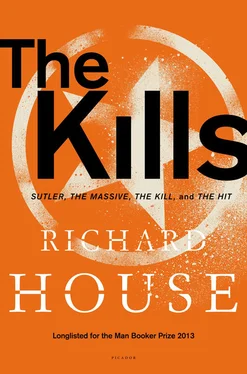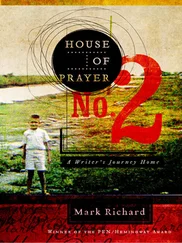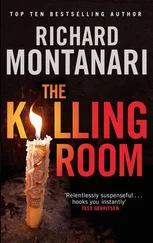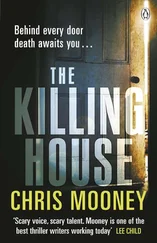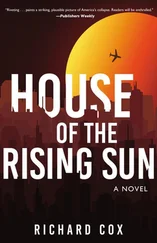The attorney settled back and looked again to Parson. ‘Does this help?’
‘It helps.’ Parson sat forward. ‘Tell me how this worked. How well did Howell know Sutler?’
The attorney shook her head. ‘I doubt he knew him at all.’ Her voice remained flat and factual.
‘But each time Howell transferred, how much?’ Parson looked to his notebook. ‘Five hundred thousand. Seven hundred thousand. Ten hundred thousand, all in American dollars.’
The attorney levelled her shoulders. A slight aggression leaked into the gesture. ‘All by legitimate order. It’s all documented. The only interesting feature here is that Sutler chose to receive the money in such small amounts.’
‘So a small two hundred thousand?’
‘It is small.’ The woman paused and cleared her throat. ‘How much do you think it would cost to build a new facility in a desert? Imagine? Scale it down, and picture them building one thing, a house, say, what would that take? You have to house the workers, feed them, transport them in and out. Then you have the materials. In principle Sutler commanded a budget of fifty-seven million, which had to be allocated in seven months. Howell had no influence over how he performed this. Camp Liberty was a waste dump for the oil ministry, then for HOSCO, none of this had anything to do with the regional government. Sutler was supposed to design a new facility and prepare the site. I don’t see how this could be done in bites of five, seven, ten hundred thousand. His budget covered the basic set-up of the facility, water, power, security, workers’ housing. Sutler was one of nearly thirty or so project managers out of the five hundred contractors the regional government dealt with directly, day to day. On top of this they managed payments for all of the ministries based here in the south. Howell dispensed between one and one and a half million dollars per month on wages to each ministry, and all of these payments were made in cash. The monthly operational budget ran into the tens of millions, on top of this were the payments to contractors for reconstruction, not all of them HOSCO projects — schools, power stations, oil facilities, water and sewage, and so on — all approved by Baghdad. Sutler was one of many, and he always collected the money himself.’
‘This is documented?’
‘We know the dates.’ She pointed at the files.
‘But other people saw him? Who did he come with?’
‘I don’t know.’ The attorney paused to consider. ‘There was the man who was killed in the attack, I’ve no information on the other occasions.’
‘And this was Steven Kiprowski?’
‘The boy who died. Stefan. Yes.’
‘And Howell always dealt in cash?’
‘Yes. The American dollars were kept in Howell’s office. But as Sutler was working for HOSCO he had an open card. This wasn’t the only expenditure Sutler managed. He had access to accounts back in Washington.’
‘Which Howell authorized?’
‘Doubtful. And there’s no record to show this. I doubt that Howell was a gate-holder for any money held out of the region. Those accounts could be managed online, it would be easy for Sutler to manipulate the accounts, he could have been anywhere to do that.’
‘When did he last see Sutler?’
The woman looked up, surprised, and when she spoke her voice curved a little higher. ‘He would have given the money directly to Sutler. So that morning.’
‘Just before they were hit? Just before the strike?’
‘Yes. There wasn’t any warning. We have reports from other people in the outer office who say that Howell had just come in to speak with them. It’s confused. Everyone in the second office, in accounts, was thrown down. Howell was in the doorway.’
‘And Sutler?’
‘Everyone assumed he was dead. The blast took everything. Howell’s office was obliterated, and the outer office lost almost three walls. One of the guards in the outer office was hit by debris and everyone was concerned about him. You have to understand it was very confusing.’
‘And Kiprowski?’
The attorney fell silent for a moment. ‘He must have been very close.’
To Parson’s surprise the attorney began to smile. ‘There’s no way of knowing any of this until Sutler tells you himself — he was supposed to prepare for one of the largest engineering projects ever attempted. A new city in the desert, and don’t forget, the gateway to the world’s largest oil reserve. It was supposed to make up for the failures in Baghdad, Amrah City. This plan was so large, so extraordinary, that no one had their eyes on him. The man is a blankness, a black hole.’
‘You’re saying we won’t find him?’
The attorney thought carefully about the question, and wanting to be honest she said that she just couldn’t see it.
2.3
After Cukurca Ford followed the service road that ran parallel to a river (then a fuel line and later a railway line), and throughout the first day he hid from the supply trucks and road tankers, from military craft, all Turkish, all heading east, small flags quivering on the first vehicle.
Now, in Turkey, he was simply John Jacob Ford, engineer — although he guessed it would be wise to keep himself away from the police, the military, away from any kind of official attention, at least until he was well away from the border. Stephen Sutler was gone, he admitted this with a little regret, and understood that he needed to destroy any evidence which would connect him to the name.
* * *
Ford couldn’t help but fret, until he had the money he wasn’t entirely secure. It was possible, even here, that there would be interest in Sutler. He wanted to speak with Geezler and learn more about what had happened, although he knew Geezler would not welcome his call.
At one o’clock on his second day in Turkey, he caught sight of a dun-brown military jeep at a distance of two, maybe three miles. Ford winced into the sun and gave himself four minutes as an estimate. Four minutes. Time enough to form a plan. Salt in his eyes, the taste of zinc in his mouth. He’d trusted himself that once he reached Turkey everything would become easier, but, after an entire morning of silence, only one solitary jeep approached, right where the highway temporarily curved from the protection of the river, the pipeline, the train track. The open plains, gentle and naked, offered no shelter. He could be half a mile off the road and still be seen.
He gave himself three minutes.
The lower right pocket on the front of his backpack held four pieces of identification.
Ford took out the cards and papers. Among the papers he found the list of accounts for the Massive; the list of eight-digit numbers. He couldn’t remember putting the list in his pocket after taking it back from Howell — but here it was, safe in his hands. Three chances, he thought, one of them gone. He tucked the paper with his passport into his pocket then set about destroying Sutler’s ID. He rubbed the card across a rock and grazed the photo, the name, the magnetic strip, and felt that he was cutting bonds and ties to a project he could not now return to. The jeep could not be seen. Rooks settled close to him. One, three, then five. They approached when he looked down, retreated when he looked up, strange bobbing witnesses. Not ravens, he remembered, but crows with grey breasts and black hoods.
He snapped the cards in half and buried them in the dirt, then squinted at the jeep — lost for the moment in the road’s soft dip. He watched it reappear, closer. Two people, jolting in unison, neither in uniform. Better to wave it down than risk another day in full sun with no food, no water; like this could be some ordinary day and some ordinary place to be found walking.
* * *
Читать дальше
